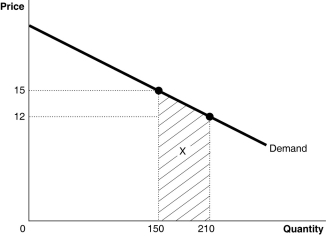Exam 1: Economics: Foundations and Models
Exam 1: Economics: Foundations and Models145 Questions
Exam 2: Trade-Offs, comparative Advantage, and the Market System151 Questions
Exam 3: Where Prices Come From: the Interaction of Demand and Supply149 Questions
Exam 4: Market Efficiency and Market Failure171 Questions
Exam 5: The Economics of Health Care117 Questions
Exam 6: Firms, the Stock Market, and Corporate Governance126 Questions
Exam 7: Consumer Choice and Elasticity193 Questions
Exam 8: Technology,production,and Costs147 Questions
Exam 9: Firms in Perfectly Competitive Markets153 Questions
Exam 10: Monopoly and Antitrust Policy148 Questions
Exam 11: Monopolistic Competition and Oligopoly200 Questions
Exam 12: GDP: Measuring Total Production and Income135 Questions
Exam 13: Unemployment and Inflation148 Questions
Exam 14: Economic Growth, the Financial System, and Business Cycles130 Questions
Exam 15: Aggregate Demand and Aggregate Supply Analysis145 Questions
Exam 16: Money, banks, and the Federal Reserve System144 Questions
Exam 17: Monetary Policy145 Questions
Exam 18: Fiscal Policy143 Questions
Exam 19: Comparative Advantage,international Trade,and Exchange Rates158 Questions
Select questions type
Society faces a trade-off in all of the following situations except
(Multiple Choice)
4.8/5  (32)
(32)
How are the fundamental economic questions answered in a market economy?
(Multiple Choice)
4.9/5  (48)
(48)
Why is it necessary for all economic systems to not only provide people with goods and services,but also restrict them from getting as much of these goods and services as they wish?
(Multiple Choice)
4.8/5  (39)
(39)
Which of the following are primarily macroeconomic topics and which are primarily microeconomic topics?
a.gasoline prices
b.unemployment
c.inflation
d.health care costs
e.air pollution
f.economic growth
(Essay)
4.8/5  (30)
(30)
Economists assume that rational people do all of the following except
(Multiple Choice)
4.7/5  (42)
(42)
The economic analysis of minimum wage involves both normative and positive analysis.Consider the following consequences of a minimum wage: a.The minimum wage law causes unemployment.
B.A minimum wage law benefits some groups and hurts others.
C.In some cities such as San Francisco and New York,it would be impossible for low-skilled workers to live in the city without minimum wage laws.
D.The gains to winners of a minimum wage law should be valued more highly than the losses to losers because the latter primarily comprises businesses.
Which of the consequences above are positive statements and which are normative statements?
(Multiple Choice)
4.9/5  (38)
(38)
Figure 1-3  -Refer to Figure 1-3.Calculate the area of the trapezoid X.
-Refer to Figure 1-3.Calculate the area of the trapezoid X.
(Multiple Choice)
4.8/5  (42)
(42)
DeShawn's Detailing is a service that details cars at the customers' homes or places of work.DeShawn's cost for a basic detailing package is $40,and he charges $75 for this service.For a total price of $90,DeShawn will also detail the car's engine,a service that adds an additional $20 to the total cost of the package.Should DeShawn continue to offer the engine detailing service?
(Multiple Choice)
4.8/5  (39)
(39)
The relationship between consumer spending and disposable personal income is
(Multiple Choice)
4.8/5  (34)
(34)
Suppose the extra cost for a doctor to keep his office open for one extra hour is $200.Then,the doctor should stay open for the extra hour even if he can generate additional revenue of $200 for that hour.
(True/False)
4.8/5  (39)
(39)
When production reflects consumer preferences,________ occurs.
(Multiple Choice)
4.8/5  (43)
(43)
The term ________ in economics refers to a group of buyers and sellers of a product and the arrangement by which they come together to trade.
(Multiple Choice)
4.8/5  (32)
(32)
"An increase in the price of gasoline will increase the demand for hybrid vehicles." This statement is an example of a positive economic statement.
(True/False)
4.9/5  (34)
(34)
Which of the following statements about the economic decisions consumers,firms,and the government have to make is false?
(Multiple Choice)
4.9/5  (31)
(31)
The basic economic problem of ________ has always existed and will continue to exist.
(Multiple Choice)
4.9/5  (32)
(32)
Showing 21 - 40 of 145
Filters
- Essay(0)
- Multiple Choice(0)
- Short Answer(0)
- True False(0)
- Matching(0)